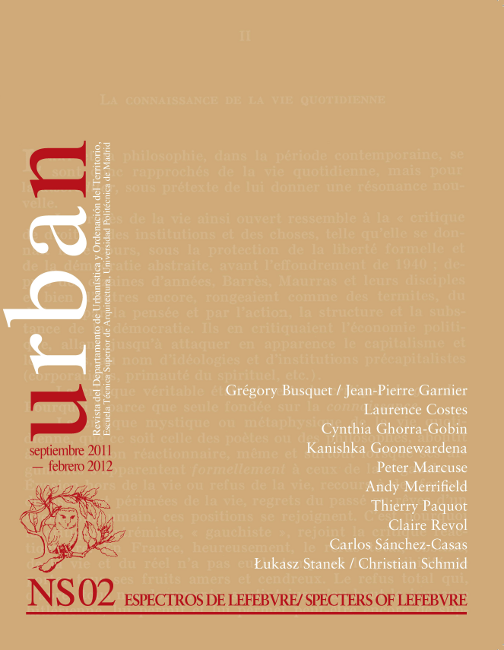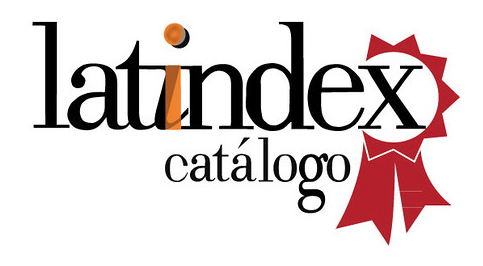Henri Lefebvre y la revolución de la vida cotidiana, la ciudad y el Estado / Henri Lefebvre and the Revolution of Everyday Life, City and State
Resumen
ResumenBuena parte de las infl uyentes lecturas de Henri Lefebvre desarrolladas en el mundo anglosajón han sido parciales y han reflejado de forma invariable preocupaciones meramente disciplinares y académicas o las modas intelectuales dominantes en un determinado período; es el caso de la crítica de la economía política de su pensamiento urbano a principios de los 70 o la lectura geográfi co-postmoderna de La producción del espacio a partir de los años 80, que aún persiste en un ‘Tercer Espacio’. El resultado es que muchos Lefebvres viven hoy con nosotros, veinte años después de su muerte, incluido un Lefebvre liberal-demócrata responsable de las interpretaciones más edulcoradas del ‘Derecho a la Ciudad’, completamente afi nes al status quo. Argumentando contra estas lecturas des-radicalizadoras, el presente ensayo intenta revivir el espíritu revolucionario de su trabajo sobre las ciudades, la urbanización y el espacio, no a través de una exploración histórico-intelectual al uso de toda su obra, y no sin someterlo al juicio crítico allí donde sea necesario, sino recuperando el sentido del animal político radical y el espíritu anti-fi losófi co que Lefebvre fue. Mostramos aquí, sin concesiones, a un Lefebvre humanista y marxista heterodoxo a través de una exégesis crítica de los conceptos con los que contribuyó más originalmente al marxismo y con los cuales teorizó lo urbano: vida cotidiana, Estado y totalidad.
Palabras clave: Urbanización, revolución, marxismo, vida cotidiana, Estado, totalidad.
Abstract
Many of the infl uential readings of Henri Lefebvre in the Anglo-American world have been partial and invariably refracted through prevailing intellectual fashions and academic-disciplinary preoccupations, such as the politicaleconomic critique of his urban thought in the early 1970s and the postmodern-geographical reading of The Production of Space from the 1980s onwards, which still lingers on in ‘Third Space’. Consequently, many Lefebvres are alive with us today, twenty years after his death, including a liberal-democratic one that is responsible for the mildest interpretations of ‘The Right to the City’ amenable to the status-quo. Arguing against such de-radicalizing readings, this essay attempts to revive the revolutionary spirit of his work on cities, urbanization and space, not by way of a traditional intellectual-historical survey of the entirety of his oeuvre, and not without subjecting him to critique wherever necessary, but by recovering a sense of the radical political animal and anti-philosophical spirit that was Lefebvre. Here Lefebvre appears without apologies as a humanist and heterodox Marxist, along with critical exegeses of those concepts he contributed most originally to Marxism, and with which he theorized the urban: everyday life, state and totality.
Keywords: Urbanization, Revolution, Marxism, Everyday Life, State, Totality.
Descargas
Descargas
Publicado
Número
Sección
Licencia
El copyright del texto y la edición será cedido por los autores a la Revista Urban del Departamento de Urbanística y Ordenación del Territorio (Escuela Técnica Superior de Arquitectura de Madrid - Universidad Politécnica de Madrid).
Esta cesión se realizará mediante la firma y envío vía mail al Equipo Editorial del modelo de carta que se encuentra en la web de la revista.
La revista permite el auto-archivo de la versión post-print (en su versión editorial) después de un periodo de 12 meses tras la publicación de la revista. La Revista Urban autoriza este auto-archivo en páginas web personales de los autores y repositorios institucionales y/o temáticos.
Urban is an open access journal which means that all content is freely available without charge to the user or his/her institution. Users are allowed to read, download, copy, distribute, print, search, or link to the full texts of the articles on this journal without asking prior permission from the publisher or the author. This is in accordance with the BOAI definition of open access.









